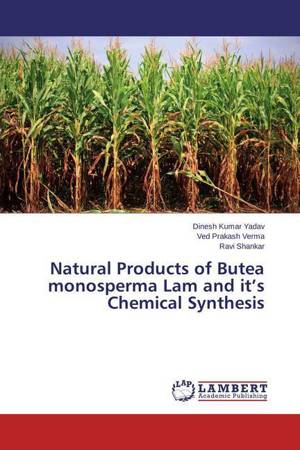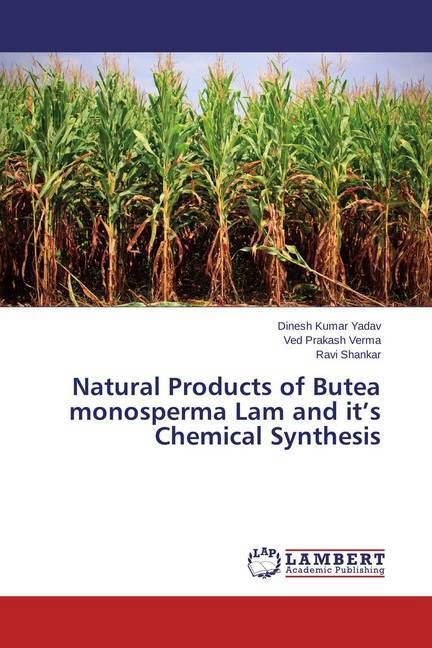
- Afhalen na 1 uur in een winkel met voorraad
- Gratis thuislevering in België vanaf € 30
- Ruim aanbod met 7 miljoen producten
- Afhalen na 1 uur in een winkel met voorraad
- Gratis thuislevering in België vanaf € 30
- Ruim aanbod met 7 miljoen producten
Zoeken
Natural Products of Butea monosperma Lam and it's Chemical Synthesis
Dinesh Kumar Yadav, Ved Prakash Verma, Ravi Shankar
Paperback | Engels
€ 70,45
+ 140 punten
Omschrijving
The WHO estimated that 80% of the world population still relies on herbal medicine as its major source of medicinal product. Despite tremendous advances in modern medicine through chemotherapy, vaccines and diagnostics, even today indigenous drugs continue to be of interest not only to the scientists but to the health providers and layman alike because plant based drugs are not only effective but have better compatibility with human systems. The compounds occurring in the plant already have biological functions and may have more biologically relevant chemistry to human system, hence lesser side effects. It was with the gradual advancement in the organic chemistry since in the early part of the nineteenth century and refinement in the methods of purification, isolation and characterization of the active principles from the medicinal plants became a reality. Since then a large number of active principles have been isolated from plants. Presently nearly 40% of all the prescriptions of modern medicine are related direct or indirect to plant origin or natural sources.
Specificaties
Betrokkenen
- Auteur(s):
- Uitgeverij:
Inhoud
- Aantal bladzijden:
- 180
- Taal:
- Engels
Eigenschappen
- Productcode (EAN):
- 9783659748851
- Verschijningsdatum:
- 7/07/2015
- Uitvoering:
- Paperback
- Afmetingen:
- 150 mm x 220 mm
- Gewicht:
- 272 g

Alleen bij Standaard Boekhandel
+ 140 punten op je klantenkaart van Standaard Boekhandel
Beoordelingen
We publiceren alleen reviews die voldoen aan de voorwaarden voor reviews. Bekijk onze voorwaarden voor reviews.







